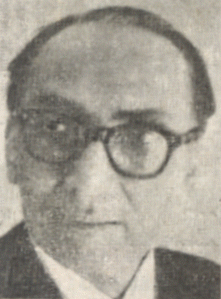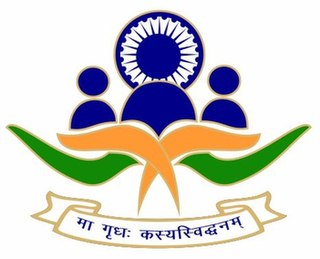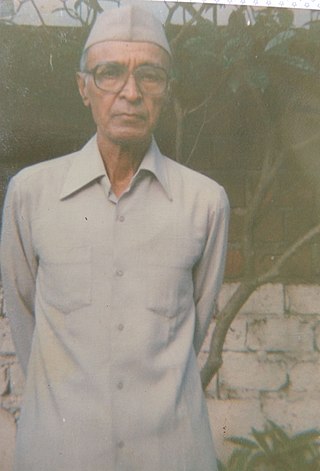Related Research Articles

Impeachment is a process by which a legislative body or other legally constituted tribunal initiates charges against a public official for misconduct. It may be understood as a unique process involving both political and legal elements.

The Lok Sabha, also known as the House of the People, is the lower house of India's bicameral Parliament, with the upper house being the Rajya Sabha. Members of the Lok Sabha are elected by an adult universal suffrage and a first-past-the-post system to represent their respective constituencies, and they hold their seats for five years or until the body is dissolved by the president on the advice of the council of ministers. The house meets in the Lok Sabha Chambers of the Parliament House, New Delhi.

The Parliament of India or Indian Parliament, is the supreme legislative body of the Republic of India. It is a bicameral legislature composed of the Rajya Sabha and the Lok Sabha. The president of the Republic of India, in their role as head of the legislature, has full powers to summon and prorogue either house of Parliament or to dissolve the Lok Sabha, but they can exercise these powers only upon the advice of the prime minister and the Union Council of Ministers.

The vice president of India is the deputy to the head of state of the Republic of India, i.e. the president of India. The office of vice president is the second-highest constitutional office after the president and ranks second in the order of precedence and first in the line of succession to the presidency. The vice president is also the ex officio chairman of the Rajya Sabha.

Kapil Sibal is an Indian lawyer and politician. A designated Senior Advocate, and currently the President of Supreme Court Bar Association (SCBA). He has represented several high-profile cases in the Supreme Court of India and is a Member of Parliament, in Rajya Sabha.
This is a brief description of the lawmaking procedure in India.
Sen is a native Bengali Hindu surname derived from "Sena", the Sanskrit word for "army".

The judiciary of India is the system of courts that interpret and apply the law in the Republic of India. The Constitution of India provides concept for a single and unified judiciary in India. India uses a mixed legal system based majorly on the common law system with civil laws applicable in certain territories in combination with certain religion specific personal laws.

Shanti Bhushan was an Indian politician and lawyer. He served as the Law Minister of India holding office at the Ministry of Law and Justice from 1977 to 1979 in the Morarji Desai Ministry. He was a senior advocate of the Supreme Court of India. He, along with his son Prashant Bhushan, was featured at 74th position in a list of the most powerful Indians published by The Indian Express in 2009.

Ashoke Kumar Sen was an Indian barrister, a former Cabinet minister of India, and an Indian parliamentarian.

A Lokpal is an anti-corruption authority or body of ombudsman who represents the public interest in the Republic of India. The current Chairperson of Lokpal is Ajay Manikrao Khanwilkar. The Lokpal has jurisdiction over central government, anyone who is or has been Prime Minister, or a Minister in the Union government, or a Member of Parliament, as well as officials of the Union government under Groups A, B, C and D. Also covered are chairpersons, members, officers and directors of any board, corporation, society, trust or autonomous body either established by an Act of Parliament or wholly or partly funded by the Centre. It also covers any society or trust or body that receives foreign contributions above ₹10 lakh. to inquire into allegations of corruption against its public functionaries and for matters connected to corruption. The Lokpal and Lokayuktas Act was passed in 2013 with amendments in parliament, following the Jan Lokpal movement led by Anna Hazare in 2010. The Lokpal is responsible for enquiring into corruption charges at the national level while the Lokayukta performs the same function at the state level. The age of Lokpal on the date of assuming office as the chairperson or a member should not be less than 45 years.

Sabyasachi Mukharji was an Indian jurist, who was the twentieth Chief Justice of India. He also previously served as the acting Chief Justice of the Calcutta High Court.
Veeraswami Ramaswami is an Indian retired judge of the Supreme Court of India and the first judge against whom removal proceedings were initiated in independent India.

Debi Prasad Pal was a Senior Advocate practicing in the Supreme Court of India and High Courts of India. He was a former Minister of State for Finance, a former Judge of Calcutta High Court and a three-time former Member of Parliament (MP) in Lok Sabha.
Paul Daniel Dinakaran Premkumar served as the Chief Justice of the Sikkim High Court. He resigned from the post following allegations of corruption and subsequent removal proceedings.
Ananga Kumar Patnaik is an Indian jurist and a former judge of the Supreme Court of India.
Juvenile Justice Act, 2015 has been passed by Parliament of India amidst intense controversy, debate, and protest on many of its provisions by Child Rights fraternity. It replaced the Indian juvenile delinquency law, Juvenile Justice Act, 2000, and allows for juveniles in conflict with Law in the age group of 16–18, involved in Heinous Offences, to be tried as adults. The Act also sought to create a universally accessible adoption law for India, overtaking the Hindu Adoptions and Maintenance Act (1956) and the Guardians and Wards Act (1890), though not replacing them. The Act came into force from 15 January 2016.

Baharul Islam was an Indian politician and judge of the Supreme Court of India. He was elected to the Rajya Sabha, the upper house of the Parliament of India, as a member of the Indian National Congress. In 1972, he resigned from the Rajya Sabha to become a judge in the Gauhati High Court, where he eventually retired as Chief Justice. He was later recalled and appointed as a judge of the Supreme Court, where he delivered a judgment absolving the then-Chief Minister of Bihar, Jagannath Mishra, in the urban cooperative bank scandal. He subsequently resigned from the Supreme Court to contest elections as a Congress party candidate and was re-elected to the Rajya Sabha.

The Department of Law, University of Calcutta, Kolkata, West Bengal, formerly University College of Law, is a faculty in the University of Calcutta, founded in 1909, colloquially referred to as Hazra Law College, which offers undergraduate, postgraduate, doctorate and post doctorate courses. The Faculty oversees fifteen affiliated Law schools of the University.
The Parliamentary Standing Committee on Finance (SCOF) is a department related standing committee (DRSC) constituted by the Parliament of India comprising selected members of parliament for the purpose of legislative oversight on the policies and decision making of the following four ministries:
- Ministry of Finance (MoF)
- Ministry of Corporate Affairs
- Ministry of Statistics and Programme Implementation
- NITI Aayog
References
- 1 2 "Rajya Sabha Approves Impeachment of Justice Sen". 18 August 2011. Archived from the original on 31 January 2013. Retrieved 23 March 2012.
- ↑ "Justice Sen faces impeachment in Rajya Sabha". Daily News and Analysis. 17 August 2011. Retrieved 23 March 2012.
- ↑ "Soumitra Sen resigns, saves embarrassment". The Pioneer. 2 September 2011. Retrieved 16 January 2012.
- ↑ "Justice Sen escapes impeachment". The Pioneer. 5 September 2011. Retrieved 16 January 2012.
- ↑ "Dinakaran, Sen to get retirement perks". 15 January 2012. Retrieved 16 January 2012.